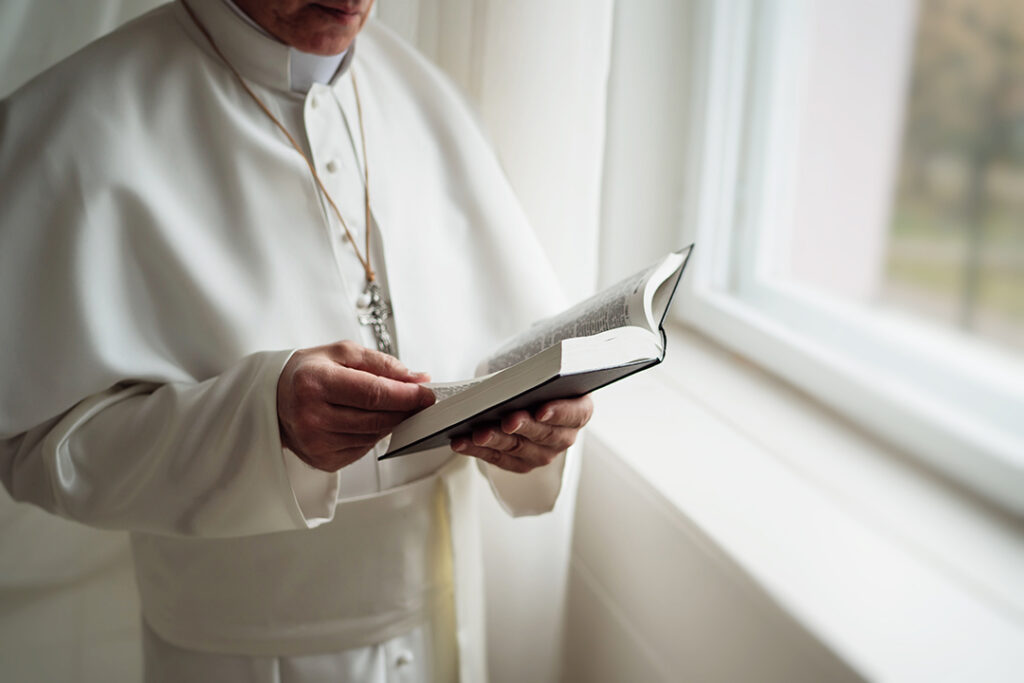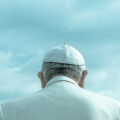Pope Benedict XVI: How his resignation changed the future of the Church
Pope Benedict XVI: How his resignation changed the future of the Church
Whilst remembered as a conservative with a commitment to the doctrine, Pope Benedict was central to allowing a new wave of reform to the Catholic Church.
Pope Benedict XVI, the first pope to step down as pontiff in over 700 years, passed away on New Year’s Eve 2022. Although throughout his life he defended and then led the conservative branch of the faith, his greatest legacy will arguably be to have helped open the way to much-needed reforms in the structure and direction of the Catholic Church.
Therefore, as a means of both reflecting on Pope Benedict’s (henceforth referred to as Benedict) life but also maintaining a view to the future, a couple of weeks following his death, it is important to look back on the contribution his papacy has made to the Church.
A global reaction
The news of the passing of Benedict, born in 1925 as Joseph Ratzinger in Marktl, Germany, brought forward messages of commiseration from religious figures, politicians, and famous people across the world.
These were of course led by the current pope, Pope Francis, who praised his “dearest” predecessor, calling him “kind” and “noble” and emphasising “his sacrifices for the good of the Church.” Pope Francis’s comments were joined by those of political leaders across the world, with US President, Joe Biden, who is just the second Catholic to hold the role, recalling time he spent with Pope Benedict at the Vatican in 2011 and commending his “lifetime of devotion to the Church, guided by principles and faith.”[1]
In a similar vein, messages came from across Europe and the wider world, with newly-elected Brazilian President Lula expressing his desire to offer “comfort to the faithful and admirers of the Holy Father.”[2]
Conservatism in a time of change
Whilst messages remembering Pope Benedict have focused on his universally admired commitment to the faith and his principles, it is important to understand that his time at the head of the Church was not free from criticism.
According to an article published in the New York Times after his death, Ratzinger rose inside the Church as a leader of the conservative Catholics, acting as an “enforcer, conservative compass and culture warrior.” This included “suppressing social activism” and “crushing dissent among more liberal theologians and drawing a hard line against gays.”[3]
However, when he ascended to the leadership of the Church after the death of his mentor, John Paul II, in 2005, he was faced with the reality that in the West, growing secularisation presented a direct threat to the Church’s influence. Rather than present a more moderate position, Benedict’s response to this was to make a “last-ditch conservative effort” to try and retain the reach and influence of the Church in what was its core support base.[4]
Whilst Benedict may have softened some of the rhetoric of his earlier career, his eight years at the head of the Vatican were often defined by the need to respond to a series of crises and scandals affecting the Church. In the vast majority of cases, these were more reflective of unfortunate timing, rather than the choices of Benedict himself. However, the pontiff also faced personal scrutiny over his own role in the handling of abuse cases when he was a cardinal in Germany, with accusations that he had on some occasions taken the side of priests, rather than the victims of alleged abuse.[5]
Opening a new chapter for the Church
In 2013, Benedict XVI announced that he would be resigning as pope, citing poor physical and mental health as the cause of his decision. However, reports emerging in the following weeks revealed that there were other motives at play, in particular a frustration with the bureaucracy and scandals that surrounded the Vatican during his leadership.[6]
In the words of papal press spokesman Father Federico Lombardi, shortly after the resignation:
“The Church needed someone with more physical and spiritual energy who would be able to overcome the problems and challenges of governing the church in this ever-changing modern world.”[7]
This comment makes reference to perhaps Benedict XVI’s greatest legacy: the fact that his biography is representative of the changing reality of the Catholic Church and its followers. On the one hand, Benedict, a German, had been a continuation of popes being exclusively from Europe, a fact that had existed for over 1,300 years.[8] Whilst in 1910, 65% of the world’s Catholic population had lived in Europe, by 2010, this number had fallen to 24%. Meanwhile, 39% of the world’s Catholic population in 2010 was from Latin America.[9]
Meanwhile, Benedict had been a close ally of John Paul II and as a result reaffirmed his conservative interpretation of Catholic doctrine and a reluctance for reform. However, under his papacy, scandals, in particular that of sexual abuses, damaged the reputation of the Church and underlined the need for deep changes to its systems.[10]
With these two considerations in place, Benedict’s decision to resign opened the way for Cardinal Jorge Bergoglio, of Buenos Aires, Argentina, to become Pope Francis in May 2013. In this sense, Francis represented both the non-European majority of followers of the faith, as well as a more liberal and reforming vision of the future of the Church.
This profile has helped Pope Francis to reach a significant degree of global popularity, both among Catholics and non-Catholics. This was proven in a 2016 BBC poll that showed him being significantly more popular than any world leader.[11]
Benedict’s legacy
Following his resignation and the appointment of Bergoglio as Pope Francis, the two popes are said to have retained a good relationship. This was maintained despite the significant ideological differences, with Benedict, for the most part, refraining from criticising changes made to the direction of the Church by Francis.[12]
As well as facilitating the transition to a modernising vision for the Church, Benedict’s resignation may also lead to a significant change to the role of the pope. There are now suggestions that it would be easier for Francis to step down, if he wishes, and with that be able to regularise the role of former pontiffs.[13] In a sense, this would be a further modernising step as it would allow the Vatican to adapt to the reality of pontiffs living into their 80s and 90s.
To conclude, whilst Benedict was throughout his career a conservative figure, who sought to retain the traditional understanding of the doctrine and of faith, in a number of ways his greatest legacy will have been to have opened the way for much-needed reforms in the Catholic Church, and helped adjust it to the 21st century.
Interested in similar topics? Go to our Dashboard to learn more.
Sources
[1] Pope Francis and world leaders pay tribute to Benedict XVI – BBC News
[2] Pope Francis and world leaders pay tribute to Benedict XVI – BBC News
[3] Benedict’s Death Leaves Catholic Conservatives Bereft – The New York Times
[4] Benedict’s Death Leaves Catholic Conservatives Bereft – The New York Times
[5] Pope Benedict XVI Leaves a Spotty Legacy With Sex Abuse Scandal – The New York Times
[6] Why did Pope Benedict XVI resign?
[7] Why did Pope Benedict XVI resign?
[8] Francis is first non-European pope in nearly 1,300 years | CNN
[9] 5 facts about Catholics in Europe | Pew Research Center.
[10] Pope Benedict Was a Law and Order Pontiff, Who Failed As a Reformer
[11] Pope more popular than world leaders – poll – BBC News
[12] Benedict XVI: ‘A role model for holiness’ – Vatican News.
[13] Benedict’s death clears path for Pope Francis to retire of old age in future | Reuters






